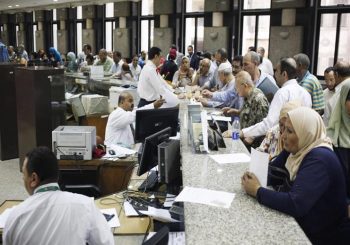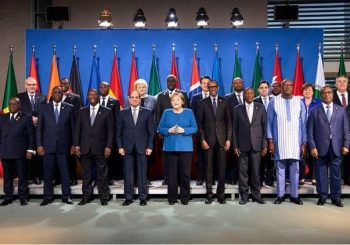An ongoing tobacco shortage has left Egypt’s 18 million smokers stuck between record-high prices and an unrelenting nicotine dependency.
The popular Cleopatra Box pack could be found at any vendor, smoking shop, or kiosk at the price of EGP 24 a few months back. Consumers report that the same pack of cigarettes today costs more than twice the price in the black market.
“I have been smoking Cleopatra for more than two decades. I remained loyal to this brand for years,” Hoda Ibrahim, 59, tells Egyptian Streets. “It’s beyond frustrating. One pack now costs me around EGP 55.”
Price Hikes
Egyptians have grown accustomed to news of cigarette price hikes over the past three years. In response to increases in production costs and the import of raw materials, coupled with the devaluation of the Egyptian pound against the dollar, companies have resorted to raising the prices of their tobacco and shisha products.
The Eastern Tobacco Company, Egypt’s largest cigarette producer, increased their products’ prices in late March of this year. Depending on the product, the price officially spans a range between EGP 10 and EGP 33. Tobacco giant Phillip Morris followed suit in April, with their products now priced between EGP 39 and EGP 59. Both companies increased their products by EGP 1-3 per pack.
According to Ibrahim Imbabi, head of the Tobacco Division at the Egyptian Industries Federation, the black market’s unreasonable prices are a result of the delayed implementation of new amendments to the value-added tax on cigarettes.
“In March of this year, we discussed the tax legislation with the Ministry of Finance, and traders were aware of it, so they raised prices, each merchant according to their preference,” Imbabi told Independent Arabia.
The Parliament went into recess before the legislation was ever discussed, leaving retailers in anticipation of a considerable hike in prices. MP Fakhry El-Fiqi, the head of the Planning and Budget Committee in the House of Representatives, has told the media that the committee will review a new cigarette taxation law at the start of the fourth legislative session in October.
Eastern Tobacco Company’s Managing Director and CEO Hani Aman revealed that they were also expecting the Ministry of Finance to propose adjustments to the tax legislation for cigarettes as production costs increased with the depreciation of the Egyptian pound against the dollar.
Retailers are assigned a specific quota based on the Eastern Tobacco Company’s plan. However, according to Aman, it is common practice for retailers to set aside a portion of their allocation in anticipation of a price increase, especially around the end of the fiscal year in June and July.
This stockpiling of cigarettes triggers an increase in demand, pushing some retailers to sell the product at a slightly increased price illegally. In previous years, this increase amounted to one or two Egyptian pounds. This year, however, it is almost equivalent to the original price of the pack.
“A few months ago, a pack of Blue L&Ms used to cost me about EGP 36. Now, I cannot find it anywhere, and on the off chance when I do, it costs me about EGP 70,” Kareem Mohamed, 33, tells Egyptian Streets. “This is pure exploitation.”
Proposed Solutions
The Eastern Tobacco Company announced on 13 August that it is boosting its production to provide the market with an additional 2.5 million packs per day. This move will increase the company’s daily market volume to 7.5 million packs in an effort to contain the situation.
Aman confirmed that any potential rise in prices would only be implemented after the approval of the cigarette taxation legislation by the parliament and not before.
Imbabi told Veto that the cigarette prices would find stability after the implementation of tax adjustments, which would cause a price increase of a maximum of two to three Egyptian pounds per pack–a far cry from the current prices in the black market.
Some are calling for tobacco seeds to be cultivated in Egypt to reduce the cost of imports. One lawyer submitted two requests, one to the Prime Minister and another to the Speaker of the House of Representatives, seeking permission to cultivate tobacco and trade its seeds. Tobacco cultivation has been prohibited in Egypt since the time of Muhammad Ali Pasha.
According to Rabie Moustafa, a professor of plant science at the Agricultural Research Center, tobacco cultivation in Egypt might be challenging because it requires more than sixteen hours of daylight and high humidity to achieve the desired taste familiar to the public.
A Suffering Consumer
Aybak Salah, 28, told Egyptian Streets that he switched to rolling tobacco about four years ago, partly because he prefers its taste, but also because it is cheaper than buying cigarettes at his consumption rate.
“What’s happening in the cigarette market has spilled over to rolling tobacco. More people are buying rolling tobacco products. I used to buy 50 grams at EGP 140. Now, it costs me EGP 30 more,” he says.

Lotfy Mohamed, 28, has been smoking Merit’s Yellow Label, a Philip Morris product, for the past six years. He tells Egyptian Streets that he likes it because of its balanced taste and feel. However, Mohamed revealed that his preferred brand has become a rarity in supermarkets and kiosks, and even when he does find it after hours of searching, the actual price of a pack exceeds its official cost by EGP 15.
“I had to experiment with different brands of lesser quality, which negatively affected my health. You understand the importance of sticking to one brand if you’re a smoker,” he says. “I know I am being exploited, but I am not considering quitting any time soon. Right now, I’m committed to finding and purchasing it regardless of the cost.”
“First, it was EGP 29, then 35, then 44, and one time I bought it at 60,” Ibrahim says. “Despite the illogical, unreasonable increase in price, I kept buying it. I only switched to other brands when I couldn’t find it anywhere. But even the other brands’ prices were haphazard. I feel like sellers knew Cleopatra smokers were looking for alternatives and decided to jump on the opportunity.“
Local Vendors
One kiosk owner in the Greater Cairo area, who wished to remain anonymous, told Egyptian Streets that retailers are responsible for the unreasonable cigarette prices in the black market.
“The big traders in areas like Bab Al-Bahr are the ones making the profit, not us,” she says. “Because of their greed, consumers blame small business owners like myself for what’s happening in the market,” she says.
The 55-year-old kiosk owner believes that although prices are slightly decreasing due to governmental intervention, they still remain significantly higher than official rates.
“I just bought a cartridge of Winston Blue for EGP 53 per pack from a retailer. I am selling it for EGP 55. The official price of the pack is EGP 36. My profit is just the two pounds, but people think I get to pocket the price difference,” she explains. “Frankly, I don’t want to sell at this rate because a neighboring kiosk might offer the same product at a better price because the retailer they deal with has lower costs, and I lose a customer.”
Another vendor told Egyptian Streets that because of the lack of oversight on cigarette prices, retailers wield significant influence over both product quantities and prices. Small business owners are compelled to adhere to these terms; otherwise, they risk losing their customers.
“Authorities have confiscated over 200,000 packs of cigarettes in various locations, including Basateen, Matariya, Bab Al-Bahr, Tanta, Alexandria, and Sayeda Zeinab,” Imbabi told Al-Ahram.
“I have proposed channeling the confiscated quantities to national gas stations [many of which sell different tobacco brands], ensuring prices remain stable. This approach would also involve restructuring the distribution network, with the Eastern Company directly supplying retailers instead of relying on distributors.”
Imbabi encouraged smokers to notify authorities about supermarkets and kiosks selling cigarettes above the barcode-listed prices.
In the midst of a tobacco shortage that has thrust Egypt’s smokers into a difficult predicament, price hikes and currency devaluation, both consumers and retailers are left grappling with the aftermath.
Subscribe to the Egyptian Streets’ weekly newsletter! Catch up on the latest news, arts & culture headlines, exclusive features and more stories that matter, delivered straight to your inbox by clicking here.






Comments (4)
[…] Zigarettenangebots aufgrund der Importkrise. Dies hat in den letzten Monaten zu einem Anstieg der Schwarzmarktpreise geführt, die die offiziell festgesetzten Preise um mehr als 100 % […]
[…] post With the Ongoing Tobacco Shortage in Egypt, Smokers Find Themselves Pushed to a Corner first appeared on Egyptian […]